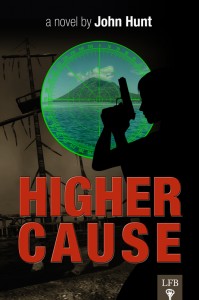
This review is part of a series covering each installment of the serialized novel Higher Cause, written by John Hunt and published by Laissez Faire Books. To catch up, start with the announcement, the book’s link-rich table of contents, and our initial news coverage.
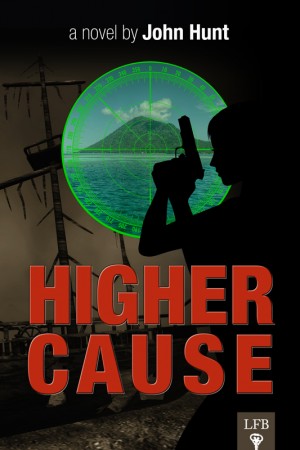
Laissez Faire Books is serializing a novel by John Hunt, a libertarian and student of Austrian Economics. Titled Higher Cause, it promises to be an epic adventure story. The first installment (of 22) consists of a prologue and the first two chapters. The remaining installments will be published every Wednesday, followed by my reviews every Friday.
I am generally in favor of eschewing prologues, and though the present one was not uninteresting, at this point I feel it was unnecessary. It seemed to set up a mystery, but then the mystery was solved at the end of the first chapter. Also, all the major points of the prologue were covered in chapter one, in brief. I would say it was better to just get to the first chapter.
However, the author does a good job of enticing us with vague but interesting possibilities. In chapter one we meet Petur, who comes to a rich investor with a proposal in a manner reminiscent of Atlas Shrugged. The details are withheld from the reader, but some great error that threatens humanity has been discovered, and Petur is attempting to set things right, before it is too late, with a market-oriented plan of attack.
In the second chapter we meet Jeff, an undercover agent trying to throw a monkey wrench in the gears of a Mexican drug lord’s machine. He runs into a little trouble and a small twist at the end.
[continue reading…]
Help Promote Prometheus Unbound by Sharing this Post


Mild Spoilers
Hans Zimmer has composed an unrelenting score that is being blasted in movie theaters across the world right now. It is not bad music by any means, but why it is launched like an assault at the eardrums I cannot fathom. Underneath this score, if one listens carefully, one can hear a movie playing, accompanied by corresponding images on a screen. The movie is called The Dark Knight Rises, and it is considered a part of Christopher Nolan’s Batman trilogy on the grounds that Batman makes a couple brief appearances in it.
It takes place eight years after the previous installment. Batman, erroneously believed to be the murderer of Harvey Dent, has disappeared, and his alter ego, billionaire Bruce Wayne, now lives as a recluse. A new super villain, Bane (Tom Hardy), has emerged to wreak havoc in Gotham City. Catwoman (Anne Hathaway) is also on the prowl, though whether she is a villain or heroine is less certain until the end of the film.
Bruce Wayne is moved to return the Caped Crusader to the streets of Gotham City as the Bane menace grows. He is pushed to this decision by a police officer with amazing faith in his pure hunch that Bruce Wayne is somehow connected to Batman, as well as the theft of his belongings and personal information by Catwoman, who was working for him as a maid in order to position herself for the strike, and who was helped along by an assistant we never really get to know, but both of them are radical egalitarians with some connection to Bane, who it turns out was behind the guy who hired Catwoman to burgle Bruce Wayne because he wants the information to set Wayne up so that he can financially ruin Wayne so that his people can take over Wayne Enterprises in the ensuing bankruptcy so that he, because he knows who Batman is, can get access to Batman’s arsenal so he can use it to further his plans to…
You know, it’s actually a little complicated. Much like its predecessor. Indeed, the movie shares all of its predecessor’s flaws but got shortchanged on the strengths.
[continue reading…]
Help Promote Prometheus Unbound by Sharing this Post

Ernest Cline is a science fiction fan and video game enthusiast who, as a former tech support employee, has spent most of his working hours surfing ’80s pop culture on the internet. As an author, he has successfully drawn from these interests to write an engaging story that weaves new technology with low-tech nostalgia. Although he has previously written about the gaming world (his screenplay Thundercade follows a video gamer’s quest to restore his championship gaming title), Cline takes the concept to an exciting new level in his science fiction novel Ready Player One, Prometheus Award finalist and our June Lightmonthly Read, which offers the reader a full immersion into the world of virtual reality gaming.
Ready Player One begins in the year 2044, and protagonist Wade Watts doesn’t have much going for him in the desolate Portland Avenue Stacks. He’s an overweight, unpopular orphan living with his aunt in a crowded RV park, where the RVs are stacked up to 20 units high in an effort to accommodate everyone in an overpopulated city fraught with power outages and gunfire. Wade finds solace by playing video games and watching reruns of family sitcoms from the ’80s, trying to lose himself in a decade when the world was a simpler and friendlier place. He also spends much of his free time logged into the OASIS, a massively multiplayer online game that has evolved into a virtual reality-based global network.
The online world of OASIS is not without conflict, however. The creator of OASIS, James Halliday, died five years before without naming an heir. At his behest, a contest is being held to determine who will control the OASIS. In his video will, Halliday explains that he has hidden three keys (Copper, Jade, and Crystal) to three gates in the simulated world of the OASIS. The first person to pass through all three gates will become heir to Halliday’s multi-billion dollar estate and gain full control of the OASIS.
Desperate to find a way out of the Stacks, Wade becomes a gunter (short for “egg hunter,” a reference the Easter egg hidden in the video game Adventure). Because Halliday had an infatuation with ’80s pop culture, his death sparks a global obsessive interest; spiked hair and acid-washed jeans come back into style, and gunters attentively study the decade’s fads and trends in hopes of discovering a clue to the keys’ locations.
Wade hopes his own vast knowledge of the decade will give him an edge in the competition, but the odds are against him. He must race to find the keys before they are found by another gunter — or worse, by the Sixers, employees of the dangerous Nolan Sorrento and Innovative Online Industries, a corporation set on gaining control of OASIS at any cost.
[continue reading…]
Help Promote Prometheus Unbound by Sharing this Post
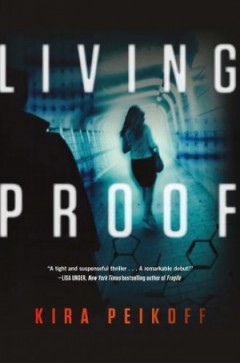
Living Proof is the opera prima of Kira Peikoff, the daughter of Ayn Rand’s intellectual heir, Leonard Peikoff. In it, Peikoff uses a near-future setting to explore the logical conclusion of certain prolife arguments with which she disagrees. The plot of this thriller is well-structured and the writing, notwithstanding the occasional imperfection, is decent. However, in the end it gave me the same feeling I get from a dish made from good ingredients that nevertheless wants salt. Or pepper. Or oregano. Or something.
Arianna — a protagonist in the Randian tradition — is a brave, rational, free-thinking and beautiful doctor working at a fertility clinic in New York City in the year 2028. Embryos have been given the same legal status as human beings, and the Department of Embryo Protection is tasked with making sure that embryos not used in implantation are frozen and taken care of instead of being disposed of. The DEP chief becomes suspicious of Arianna when her clinic experiences a sudden and inexplicable surge in popularity. He sends Trent Rowe undercover to earn Arianna’s trust so he can find out what she is up to and if she is “murdering” embryos. What Trent discovers will challenge his beliefs, and he must make a choice between what he was raised to believe, and what Arianna has taught him.
Peikoff’s prose is decent, although she occasionally misuses words, which sound like notes of a melody played flat. On page 58, for instance, she uses “pretext” when she means “pretense.” On page 55 she uses “oblivion” when she cannot possibly have meant it.
She also has an affinity for metaphors, some of which go off well and help elucidate an idea. For instance, on page 261 she writes, “But recently the cells had been tantalizingly close to the goal, developing as astrocytes or microglia instead of oligodendrocytes, like Cokes instead of Diet Cokes.” However, there are just as many times when no metaphor is needed, or the one she chooses takes the reader out of the story. A good example is on page 163, where a character is said to be “trapped in an ethical straitjacket, laced tight with emotional strings.” It is not that the metaphor cannot convey the idea, but the particular one used seems a little silly and distracting, like a knowledgeable professor whose belly spills over the waistline of the pants he bought when he was 40 pounds lighter.
[continue reading…]
Help Promote Prometheus Unbound by Sharing this Post
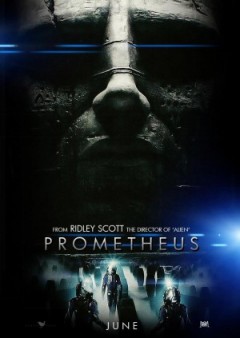
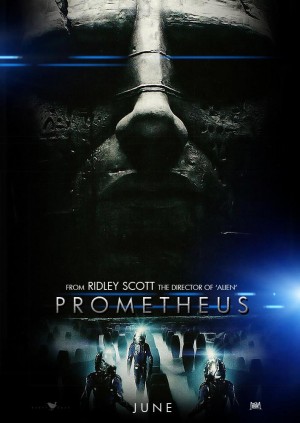
One cannot help but notice that, cinematically speaking, director Ridley Scott’s best days seem to be behind him. They were glorious days, though short lived; nothing after Blade Runner could compare to his second and third films. One might also note that he left his best days behind at precisely the time when he left behind science fiction. It is understandable, then, if one supposes that a return to the genre that made him might also be a return to form. Alas, it is not so. Scott’s latest feature, Prometheus, is a disappointment even for one whose expectations were not that lofty.
Prometheus returns us to the universe of Alien, that sublime work of sci-fi horror that remade an entire genre. This time, it is the late twenty-first century, a few decades before Ripley, Dallas, Parker, and the rest will land on LV426. Cave paintings all over the world, and from many different millennia, have been found to depict a giant gesturing to the stars as smaller, human forms worship him. Through means not satisfactorily explained, two scientists, Charlie Holloway (Logan Marshall-Green) and Elizabeth Shaw (Noomi Rapace), determine that this is an invitation from a race that created our kind. Not only that, but they are able to pinpoint the star system to which we have been beckoned. The infamous Weyland-Yutani corporation bankrolls a scientific expedition to the system and danger ensues.
A strange approach to the movie is taken, one which is a peculiar fit for a prequel to Alien. Whereas the original started when the story started, introduced us to believable characters whom we slowly came to know only by how they acted and interacted, and got down to the business of slowly creeping us out before scaring us senseless, Prometheus attempts a good deal more. It begins with an ill-advised prologue in which we see one of the mysterious beings, instead of discovering them for the first time with the crew later in the movie. After the prologue we see the prelude to the expedition, the scientists discovering one of the cave paintings, something rendered entirely unnecessary when they explain it all to the crew anyway after coming out of hypersleep. They even spend some time with character back story.
[continue reading…]
Help Promote Prometheus Unbound by Sharing this Post

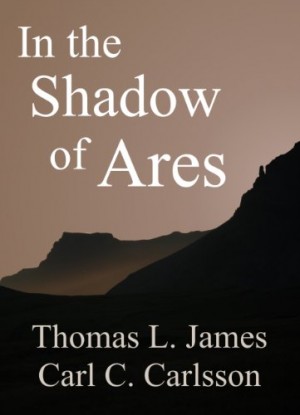
In the Shadow of Ares is a tale with a marvelous setting and a great central idea that, as it unfolds, wraps the reader up and will not let go. It is also a minarchist libertarian tale, in that the dangerous, punitive, and stupid aspects of government are laid bare while the readers are urged to hold government in check to allow the market to better flourish. There is a lot here to like, but there are also a number of defects that mar the work, though nothing to such a degree and of such a nature as to make one pessimistic about better future prospects for the first-time authors. They have shown that they can design and fashion a stirring tale; let us hope that they polish the next one.
Amber Jacobsen is the First Kid on Mars, the first child born there to parents who were among the earliest colonists. It is thought that Mars is too dangerous for children, and Amber’s parents have been chided for deciding to remain and have a child there. Even in her teenage years, she remains the only child ever to be born on Mars.
Having homesteaded some land where they live in an airtight “hab,” sheltered from the lethal conditions on the Martian surface, Amber’s parents, Aaron and Lindsey, have earned the ire of the Mars Development Authority, a quasi-governmental organization that no one will stand up to and that wishes to extend its power and control over every colonist on the red planet. In addition to the effrontery of daring to live free, Aaron Jacobsen has also made enemies with one of the officials at the MDA. When the MDA secretly sabotage the Jacobsen residence, they are forced to find another place to live.
They make their way to The Green, a relatively large settlement that figures to be of central importance in the new Martian society as soon as their land claim vests. This the MDA does not want to see happen, because it means they will lose all authority over them, both the authority spelled out in The Charter — analogous to the US Constitution — and any authority that the MDA has helped itself to.
Amber finds herself unwanted because of her age, though she yearns to be taken seriously. While trying to prove herself to the people of The Green, she also becomes deeply invested in the mystery of the Ares III mission, which disappeared a couple decades before under perplexing circumstances. She starts to suspect that someone who knows more than she is trying to prevent her from making any headway in her search and is willing to take criminal measures if necessary.
[continue reading…]
Help Promote Prometheus Unbound by Sharing this Post
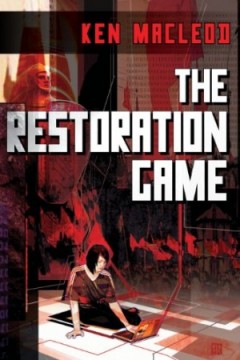

Having never read a Ken MacLeod novel before, I found my introduction to him to be a bit rocky. The opening chapters of The Restoration Game were replete with irritants. After that it settled down and started to tell an interesting story, but never quite managed to completely convince. It had the right ingredients for a better tale, but it could not get the doses right and wound up feeling, for all its positive points, out of balance.
The story’s protagonist, Lucy Stone, spent most of her childhood in the fictional Soviet Republic of Krassnia, but now works for a computer game company in Edinburgh. Her company is hired to make a Krassnian version of a popular medieval computer game, and her heritage and lingual abilities, rare to be found in the West, are the reason her company was chosen. There is more to this request for a Krassnian video game than is initially apparent, however. Lucy’s mother is a former CIA operative, and another man who might be her father is mired in the same kind of political intrigue. Through them Lucy gets entangled in an international plot the details of which are murky but the danger in which becomes increasingly apparent. Finally, she finds herself on a mission with consequences so far reaching that “epic” does not seem to do them justice.
[continue reading…]
Help Promote Prometheus Unbound by Sharing this Post




















